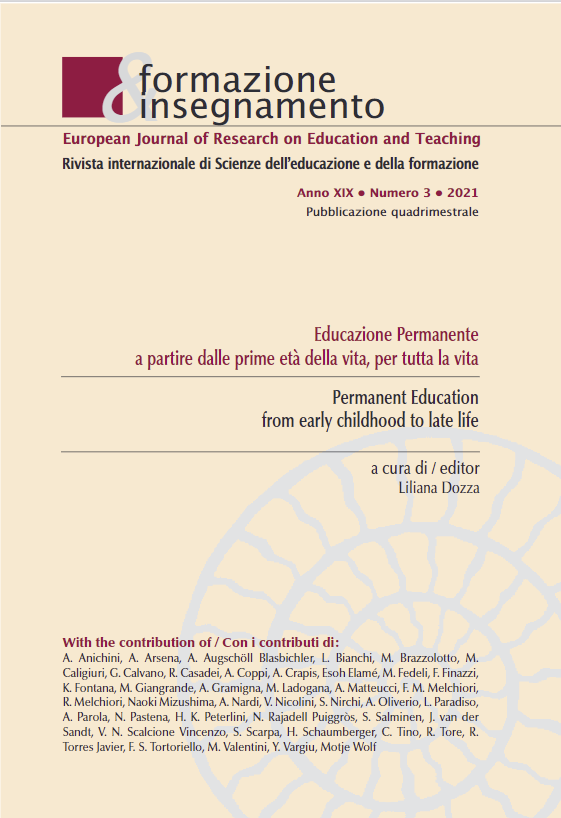Metamathematical Debate: a new metacognition-oriented approach to mathematics education
DOI:
https://doi.org/10.7346/-fei-XIX-03-21_20Abstract
This paper aims to illustrate the metamathematical debate (MMD) model as a new approach to metacognition-oriented mathematics teaching. Firstly, after having defined and characterized the debate methodology, we clarify the main questions that its application to mathematics as a discipline raises, such as the rôle of argumentation and dialectical interaction, and the
necessity of lato sensu metamathematical questions, which allow to discuss how and why we do what we do in our mathematics class. Secondly, we propose three possible approaches to metamathematical debate, which we call ‘worst error’, ‘comparative analysis’, ‘best explanation’. Such approaches address some well-known issues of mathematics teaching, namely: overcoming the correct answer compromise; refining fundamental skills of mathematical literacy and competence; also, they enquire into the explanatory capacity of a proof. Finally, after having shown the feasibility and functionality of this social-constructivist model, illustrating some peculiarities of the format and providing concrete examples of implementation, we observe that metamathematical debate allows, better than other strategies, to renegotiate the didactic contract towards a-didactical situations suitable for teaching productive mathematical skills, such as problem-solving and argumentation, whose learning is influenced by metacognitive, linguistic and affective factors.
Downloads
Published
How to Cite
Issue
Section
License
Copyright (c) 2021 Pensa MultiMedia

This work is licensed under a Creative Commons Attribution 4.0 International License.
Formazione & insegnamento is distributed under Attribution 4.0 International (CC BY 4.0).
For further details, please refer to our Repository & Archiving Policy, as well as our Copyright & Licensing Terms.





